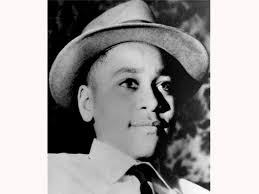
The Los Angeles Times reports:
“As the nation mourns the Uvalde school shooting, where 19 children and two teachers were killed by a gunman in a classroom last month, some people believe an ‘Emmett Till moment’ could change the course of the country’s gun control debate, by illustrating the bloody and deadly impact of firearms.
“The idea of communities and lawmakers seeing gruesome photos or videos of the dead children has raised questions about whether it might bolster long-awaited traction on gun control measures at state and federal levels.
“But opponents of the tactic say it could intensify the trauma of grieving families or fuel misinformation and disinformation campaigns such as when InfoWars founder Alex Jones called the 2012 shooting at Sandy Hook Elementary School in Newtown, Conn., a hoax.
“Shocking people with the release of graphic photos won’t necessarily create change, said Mark Barden, whose son Daniel was one of the 20 children killed during the Sandy Hook shooting.
“Showing the photos may inspire people to commit violent acts based on the grotesque imagery, said Barden, who is co-founder and managing director of Sandy Hook Promise, an organization focused on preventing violence and training schools and communities about issues like social isolation and suicide prevention.
“‘I just think that folks are desperate to try to do something, anything they can to stop this shooting epidemic that we are suffering in this country, and I think they’re just trying to grasp at anything that might move the needle,’ he said.
“After his son was shot to death, the only time he thought about releasing the photos was when families began lobbying the state Legislature to shield the pictures from the public record. In 2015, then Connecticut Gov. Daniel P. Malloy signed a bill exempting photographs, film, video and other images of homicide victims from being part of public records law.
“‘I can’t risk the toll of the lifelong damage that could possibly represent for everyone, but first especially for my personal family and for Daniel’s siblings,’ he said. ‘I just feel like, if anyone did release photographic evidence like that, would we still be saying “if that didn’t do it, what will?”’”
https://www.latimes.com/california/story/2022-06-09/after-uvalde-shooti…
Like Connecticut, Kentucky enacted a statute in 2021 excluding “photographs or videos that depict the death, killing, rape, or sexual assault of a person” from the open records law. The law carves out exceptions for named individuals and for body cam video in general.
https://apps.legislature.ky.gov/law/statutes/statute.aspx?id=51393 (see subsection (q))
The law — honoring the victims of the Marshall County High School op shooting in 2018 — met with minimal resistance and was signed into law by the Governor.
Introduced in the immediate wake of the murders of George Floyd and David McAtee, among many others, the Kentucky Open Government Coalition opposed the bill. We argued that the privacy exception that already exists in Kentucky’s law ensures adequate protection for photos and videos depicting these horrific events — in deference to grieving family members — but leaves the door ajar for those instances where the photos and videos depict the action or inaction of public officials and employees who fail to discharge their duties.
https://www.facebook.com/419650175248377/posts/860151301198260/?d=n
This concern has subsequently been confirmed in, for example, the resistance of Louisville Metro Corrections, and other correctional facilities, to disclose jail surveillance video taken at or near the time of death of individuals housed in these facilities.
https://www.state-journal.com/news/county-denies-sj-video-of-jail-inmat…
https://www.spokesman.com/stories/2022/jun/05/more-than-6-hours-of-spok…
Given the questions surrounding law enforcement response at Robb Elementary School in Uvalde — and the public’s ability to assess that response rather than blindly accept officials’ assessment — we remain convinced that the 2021 open records exception for “photographs or videos that depict the death, killing, rape, or sexual assault of a person” was ill-advised. However well meaning the sponsor’s motives, we continue to believe that the privacy exception afforded more than adequate protection for these records in those cases where they are in the custody of public agencies.
Not, perhaps, an “Emmett Till moment” but a “George Floyd moment” or a “David McAtee moment” and, although we hope we are wrong — what might come to be known as a “Uvalde moment.”



